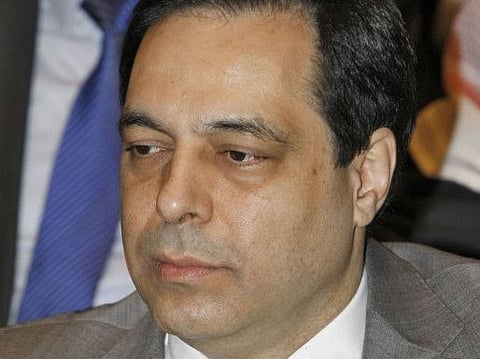Lebanese professor Hassan Diab nominated to be PM. Who is he?
Hezbollah-backed candidate will likely get the support of the majority of the parliament

Also In This Package
Beirut: Lebanon’s Deputy Parliament Speaker Elie Ferzli, an ally of the Iran-backed Hezbollah, said on Thursday he had nominated former minister Hassan Diab as prime minister, indicating the Shiite group and its allies had agreed on him for the position.
Later his nomination was accepted by the majority of parliament and he was appointed as Prime Minister.
The little-known 60-year-old engineering professor at the American University of Beirut (AUB) replaces outgoing premier Saad Hariri after nearly two months of intense political wrangling.
About Diab
Diab, a professor of computer engineering, served in the government formed in 2011 when Hezbollah and its allies overturned a former Cabinet headed by Hariri.
A father of three, Diab is an independent who had shied away from the political limelight since leaving his post as education minister in 2014.
He is a career academic with a PhD in Computer Engineering from Britain's University of Bath, and is currently a professor of electrical and computer engineering at AUB.
Diab has held several academic and administrative posts at the university - including that of vice president - since joining it as an assistant professor at the age of 26.
He is a self-styled advocate for educational reform in Lebanon, authoring books and several papers on the subject.
"I am certain that the solution to most of our economic, unemployment, social, financial, and even political challenges, lies in education in all its forms," he writes on his website.
His brief previous experience in politics came at a time of political polarisation in Lebanon.
His tenure as education minister between 2011 and 2014 was in a government formed after Hariri's cabinet was brought down by Hezbollah and its political allies.
The emergence of Diab as a possible candidate comes amid the country’s worst economic crisis since the 1975-90 civil war.
The backing by the Iran-backed group guarantees a thorny path for any candidate who also faces a mammoth task amid mass protests that have recently taken a violent turn.
Hariri withdraws from consideration
Diab, who served as education minister in 2011, received attention after caretaker Prime Minister Saad Hariri withdrew his name from consideration amid deep divisions between the various factions about naming him again.
Hariri resigned on Oct. 29 in response to unprecedented mass protests against his government amid a rapidly worsening economic crisis.
Since then, efforts to agree on a new prime minister and the shape of government have kept hitting a dead end.
Hariri, who is aligned with the West and Gulf countries, has insisted on a Cabinet made up of specialists to deal with the economic and financial crisis — a key demand of the protest movement — while the Iran-backed Hezbollah has demanded a government that includes all major political factions.
Binding consultations between President Michel Aoun and representatives of the 128-member parliament were delayed twice as Lebanon saw some of the worst violence since protests erupted in mid-October.
The clashes have involved security forces and anti-government protesters, as well as supporters of Lebanon’s two main Shiite groups, Hezbollah and Amal.
On Thursday, Aoun was expected to name Diab at the conclusion of the long-delayed talks with the heads of parliamentary blocs.
Expected to get majority backing
For a nomination, he needs needs the backing of at least half of the lawmakers, which he was expected to get after he received the support of Hezbollah, the Shiite Amal movement headed by Parliament Speaker Nabih Berri as well as Aoun’s bloc in parliament.
In Lebanon’s sectarian-based political system, the prime minister has to be from the Sunni Muslim community.
However, it was clear that Diab would not have the crucial backing of Hariri and other major Sunni figureheads in the country, and would face huge challenges in forming an inclusive new government able to secure financial aid from the West.
Hariri’s bloc of 18 lawmakers as well as another Sunni bloc with three seats, headed by former Prime Minister Najib Mikati, declined to name a favorite in the talks with Aoun.
``May God make everyone successful,” Harri told reporters after briefly meeting with Aoun on Thursday.
The international community has made the formation of a serious, reform-minded government a condition for releasing assistance to the country.
Blocking Hariri's path
Hariri had until this week hoped to be named premier again but failed to get the support from Christian parliamentary blocs.
``It has become clear to me that, despite my categorical commitment to forming a government of specialists, the positions ... are not changing, I therefore announce that I will not be a candidate to form the next government,’’ Hariri said in a statement Wednesday.
Protesters in the streets say they want new faces to govern Lebanon, one of the world’s most indebted countries.




